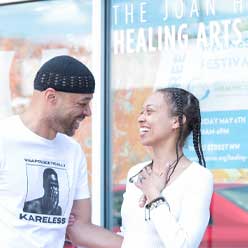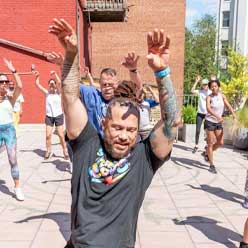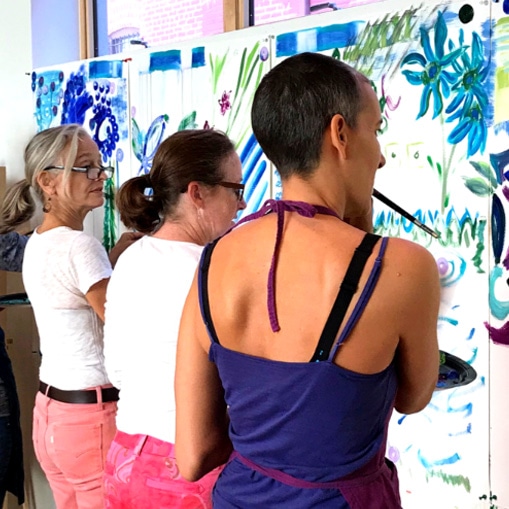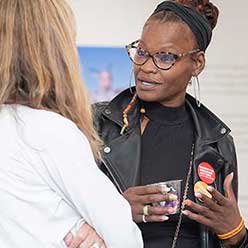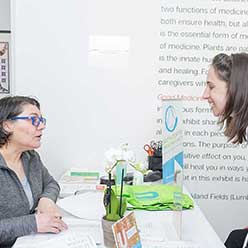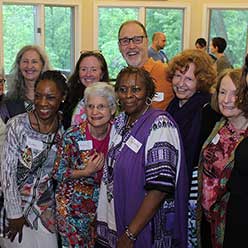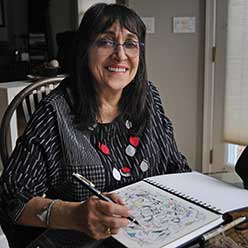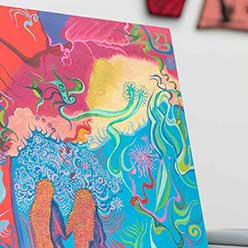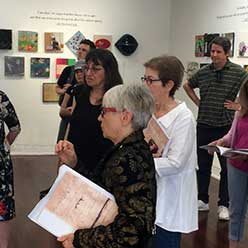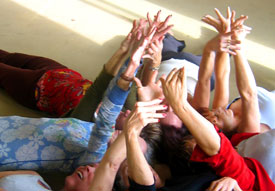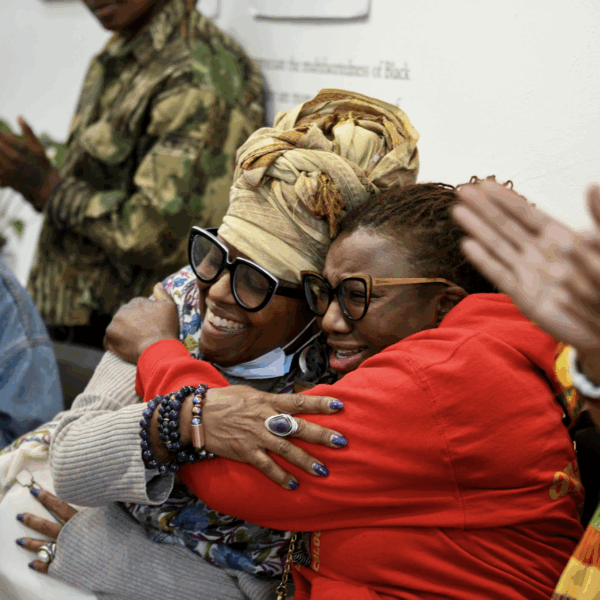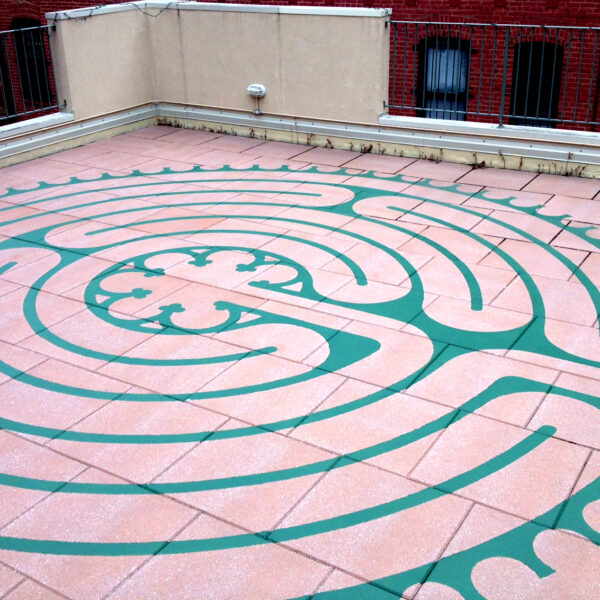Meet Kiamsha Leeke
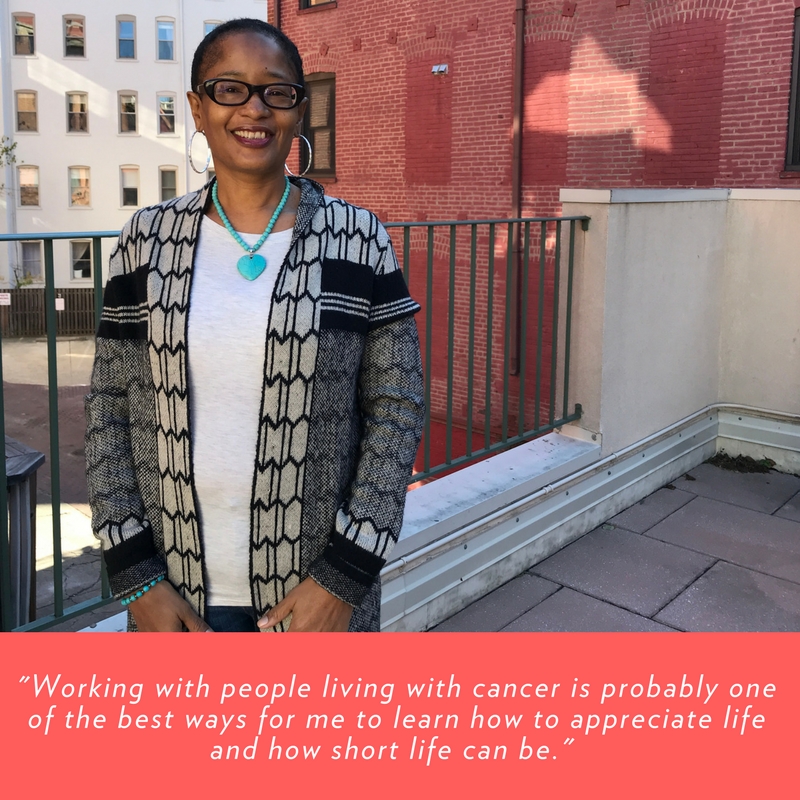
Kiamsha Leeke, current Artist-in-Residence at Walter Reed Military Medical Center, shares her experience working with cancer patients and Wounded Warriors.
C: Can you just share a brief summary of what the Artist-in-Residence program is and you role?
K: So the artist in residence program was started in 2001. You need to check with Shanti just to make sure but that’s when I came in for the trainings so it’s a program that allows local artists to bring their gifts into a hospital setting for the patients, their families, the staff. Just the environment. It’s to bring healing arts to folks, which is an opportunity for them to open up in whatever direction they need to. So the artist-in-residence program started with a tremendous community of artists that span from visual to dance to music to writers. To the written word, to the spoken word, to artists that were from the Americas, from the continent of Africa, folks that, I mean it was a diverse group of folks. Professionally trained artists as well as self-taught artists like myself. Men and women, gay, straight, it was inclusive, the community.
One of the things that I really admired about each artist is that their calling to this work, it was either as a result of their own healing journey and/or a family member, or work that they have done previously, and this deep sense of giving back. That is at the core of being an artist-in-residence is understanding that your gift is not just for you, it’s for others. And how can I be of service to others?
The other thing about the artist-in-residence program that Shanti and Scott Stoner, and all the other folks that have been involved in it, made sure that the artists were compensated. For their work. That included work that was in the hospital, when workshops were requested, payment for that, and that’s important because that affirms and values the artists. I still would do the work no matter what but there’s an added bonus when you are being compensated to do what you love.
It really does bring a lot of respect to the program because the hospital’s understand that. That is a key piece and there’s a seriousness of it when you work in the hospital setting.
